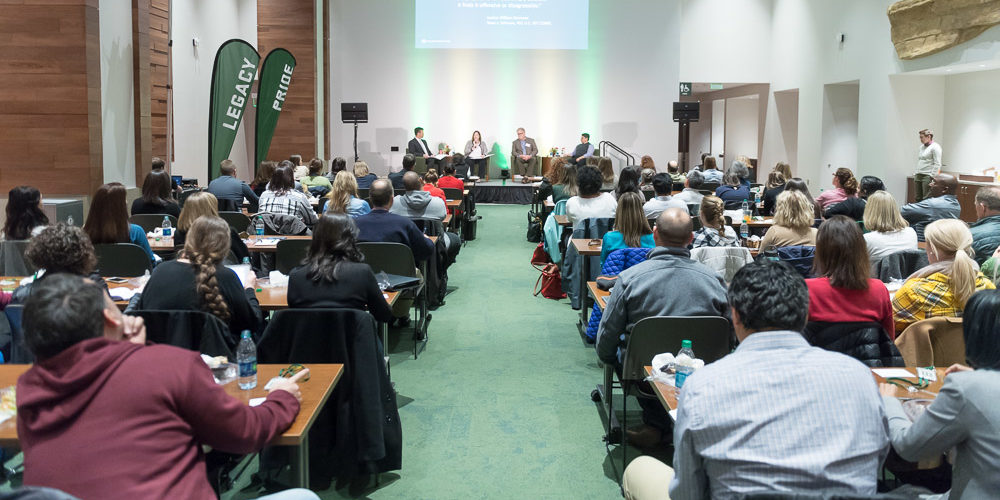
CSU First Amendment Conversation Series, pilot session, Dec. 13, 2017.
From controversial speakers to classroom discussions, from residence hall spaces to student plaza activities: What constitutes protected free speech on campus, and when does it cross the line into unprotected forms of expression? The answers are nuanced and defined by 100 years of case law that center around such concepts as fighting words, the heckler’s veto, symbolic speech, content neutral time/place/manner restrictions, and concerns around safety and disruption to campus operations.
Colorado State University launched the First Amendment Conversation Series last December to help faculty and staff understand the rights and restrictions of free speech and peaceful assembly on campus. The pilot was hosted by the Multicultural Staff and Faculty Network, which will continue to co-sponsor the series going forward. The pilot session was an overwhelming success with registration filling up within two days of a limited announcement to campus. As a result, the University decided to expand the number of sessions it already was planning to offer during the Spring 2018 semester.
CSU Provost and Executive Vice President Rick Miranda provided opening comments at the pilot session. He said CSU and other universities are in a difficult position: not wanting to enable the normalization of hate speech while remaining committed, indeed obligated, to uphold the Constitution and the First Amendment, which can protect the expression of hateful speech.
“There’s a lot of tension in the country between these competing values, and it’s being expressed in a unique way on college campuses,” said Miranda. “How do we reconcile our commitment to free speech given our abhorrence of hate speech? This is our challenge at this moment in history.”
The First Amendment Conversation Series
Session I: The First Amendment on Campus – What CSU Faculty and Staff Need to Know
Session II: The First Amendment on Campus – Proactive Strategies for Inclusion
All sessions are free and open to the public, but seating is limited and registration is required.
For more times, dates, locations and to register, go to the CSU First Amendment website.
First Amendment to the U.S. Constitution
Congress shall make no law respecting an establishment of religion, or prohibiting the free exercise thereof; or abridging the freedom of speech, or of the press; or the right of the people peaceably to assemble, and to petition the Government for a redress of grievances.
Passed by Congress September 25, 1789
Ratified December 15, 1791
The First Amendment Conversation Series is designed to provide resources, information, and best practices for CSU faculty and staff as they navigate issues and questions around the First Amendment and free expression on campus including hate speech and incidents of bias. Each session begins with a panel presentation and then is open to audience Q&A. Participants are encouraged to attend any or all of the sessions, as the conversation will change depending on what the audience wants to discuss.
When asked how free speech protection of hate speech aligns with our University values, panelist Ria Vigil with the Office of the Vice President for Diversity told the audience that it’s important to remember that the Principles of Community specifically call for freedom of expression, critical discourse, and the advancement of knowledge.
“We simply cannot promote the Principles of Community without valuing free speech. We want people to have tried and tested their values through free expression and to bring critical thinking to their values,” said Vigil. “And we need to switch our mentality from being reactionary to being proactive, and educate our faculty, staff and student body to know their free speech rights. We have an incredible opportunity here.”
In addition to Vigil, other panelists for the First Amendment Conversation Series include Jason Johnson and Jannine Mohr with the Office of General Counsel, and Vice President for External Relations Tom Milligan. The series is facilitated by Kalie McMonagle with the Center for Public Deliberation.